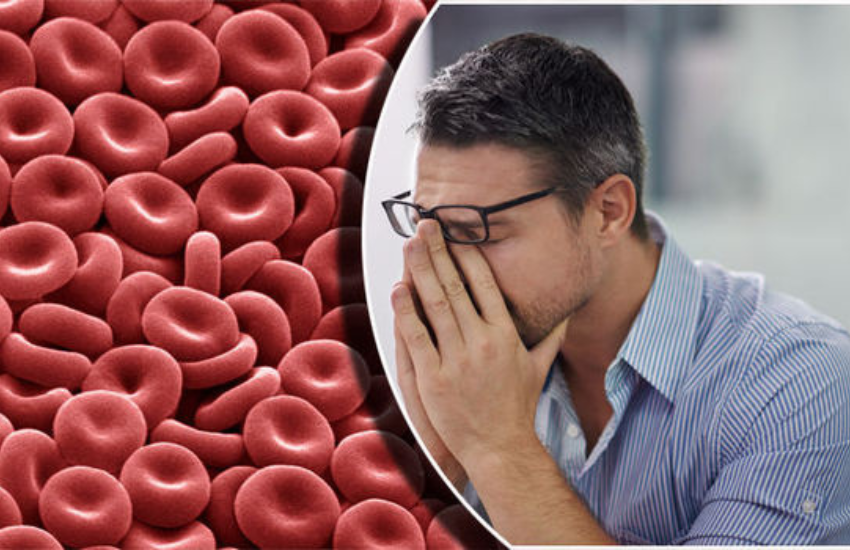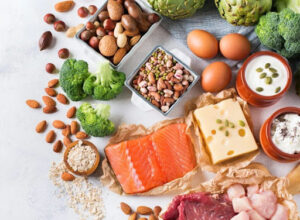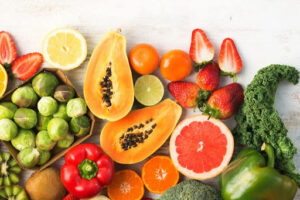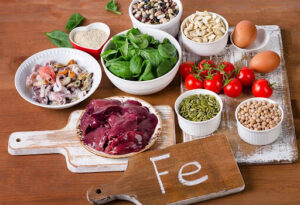
Anaemia is a common condition in which the number of red blood cells, or the haemoglobin is not enough to carry enough oxygen to our body’s tissues. This can cause patients to feel tired or weak. Anaemia comes in many forms and extents, with supplements and medical procedures being some of the most common treatment methods.
Digestive system
Loss of appetite in patients is one of the most common symptoms in anaemia. Abdominal distention, abdominal discomfort, nausea, and constipation may occur at the same time. Patients with severe anaemia may have slightly enlarged livers.
Cardiovascular system
Anaemia increases cardiac output, which means that one’s heart works harder than usual to supply oxygen to the rest of the body. Palpitations and shortness of breath after physical activity are also likely to occur in those with anaemia. When a patient is severely anaemic, palpitations and shortness of breath may be experienced even at a state of rest.
Nervous system
Low levels of haemoglobin may prevent the brain from receiving enough oxygen. Symptoms include dizziness, headache, tinnitus, problems with concentrating, fatigue and cramping and tingling in the limbs. Those with severe cases of anaemia may experience fainting spells.
Reproductive system
Heavy periods can lead to iron deficiency anaemia because of the amount of blood that has been lost.
Let’s take a look at foods that can help alleviate symptoms of anaemia.
 Foods that are rich in protein
Such food can help provide heme iron for your stomach. Foods that are good sources of protein include: Eggs, dairy, seafood, lean meat, nuts and beans.
Foods that are rich in protein
Such food can help provide heme iron for your stomach. Foods that are good sources of protein include: Eggs, dairy, seafood, lean meat, nuts and beans.
 Foods rich in vitamin C
Some 1.clinicians believe that Vitamin C can improve the efficacy of oral iron, and help speed up treatment for anaemia. This has been backed up by some 2.studies which observed that Vitamin C aids in increasing absorbable ferrous iron. Foods that are good sources of Vitamin C include:
Sour dates, apricots, oranges, hawthorn, tomatoes, bitter gourd, green bell peppers, lettuce, and green bamboo shoots.
Foods rich in vitamin C
Some 1.clinicians believe that Vitamin C can improve the efficacy of oral iron, and help speed up treatment for anaemia. This has been backed up by some 2.studies which observed that Vitamin C aids in increasing absorbable ferrous iron. Foods that are good sources of Vitamin C include:
Sour dates, apricots, oranges, hawthorn, tomatoes, bitter gourd, green bell peppers, lettuce, and green bamboo shoots.
 Iron-rich foods
Because iron is the main component of blood, iron-deficiency anaemia is one of the more common types of anaemia. Foods that are good sources of Vitamin C include: Chicken liver, pig liver, beef and sheep kidney, lean meat, egg yolk, kelp, black sesame, sesame paste, black fungus, soybean, mushroom, and celery.
Iron-rich foods
Because iron is the main component of blood, iron-deficiency anaemia is one of the more common types of anaemia. Foods that are good sources of Vitamin C include: Chicken liver, pig liver, beef and sheep kidney, lean meat, egg yolk, kelp, black sesame, sesame paste, black fungus, soybean, mushroom, and celery.
Reference:
Foods that can help fight anaemia
Let’s take a look at foods that can help alleviate symptoms of anaemia.
 Foods that are rich in protein
Such food can help provide heme iron for your stomach. Foods that are good sources of protein include: Eggs, dairy, seafood, lean meat, nuts and beans.
Foods that are rich in protein
Such food can help provide heme iron for your stomach. Foods that are good sources of protein include: Eggs, dairy, seafood, lean meat, nuts and beans.  Foods rich in vitamin C
Some 1.clinicians believe that Vitamin C can improve the efficacy of oral iron, and help speed up treatment for anaemia. This has been backed up by some 2.studies which observed that Vitamin C aids in increasing absorbable ferrous iron. Foods that are good sources of Vitamin C include:
Sour dates, apricots, oranges, hawthorn, tomatoes, bitter gourd, green bell peppers, lettuce, and green bamboo shoots.
Foods rich in vitamin C
Some 1.clinicians believe that Vitamin C can improve the efficacy of oral iron, and help speed up treatment for anaemia. This has been backed up by some 2.studies which observed that Vitamin C aids in increasing absorbable ferrous iron. Foods that are good sources of Vitamin C include:
Sour dates, apricots, oranges, hawthorn, tomatoes, bitter gourd, green bell peppers, lettuce, and green bamboo shoots.
 Iron-rich foods
Because iron is the main component of blood, iron-deficiency anaemia is one of the more common types of anaemia. Foods that are good sources of Vitamin C include: Chicken liver, pig liver, beef and sheep kidney, lean meat, egg yolk, kelp, black sesame, sesame paste, black fungus, soybean, mushroom, and celery.
Iron-rich foods
Because iron is the main component of blood, iron-deficiency anaemia is one of the more common types of anaemia. Foods that are good sources of Vitamin C include: Chicken liver, pig liver, beef and sheep kidney, lean meat, egg yolk, kelp, black sesame, sesame paste, black fungus, soybean, mushroom, and celery.
Reference:
- ncbi.nlm.nih.gov/pmc/articles/PMC7607440
- pubmed.ncbi.nlm.nih.gov/30272083
- https://www.ncbi.nlm.nih.gov/pmc/articles/PMC4331396/
- https://www.texasmedicalinstitute.com/10-symptoms-of-anemia-you-shouldnt-ignore/




